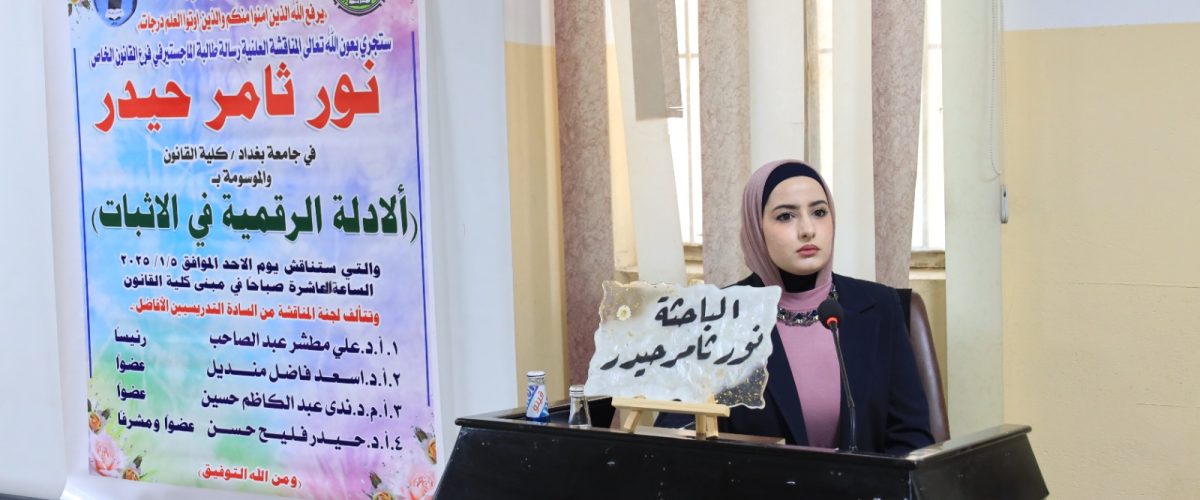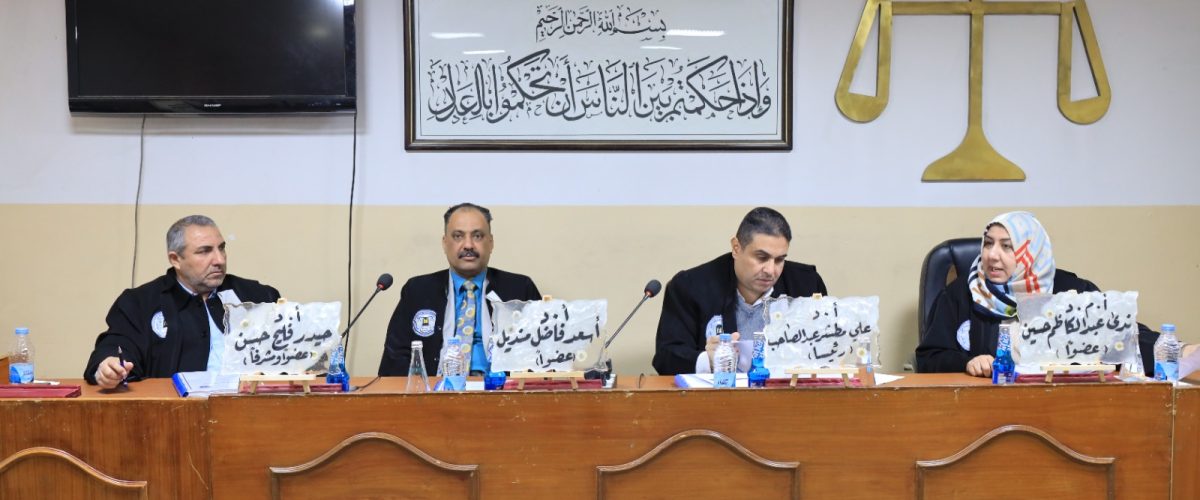The College of Law at the University of Baghdad discussed a master’s thesis in the of Private Law by student Noor Thamer Haider, titled “Digital Evidence in Proof”, on Sunday, January 5, 2025, in the college’s model courtroom.
The discussion committee consisted of the following members:
- Prof. Dr. Ali Matar Abdul-Sahib (Chairman)
- Prof. Dr. Asaad Fadhil Mandil (Member)
- Assist. Prof. Dr. Nada Abdul-Kadhim Hussein (Member)
- Prof. Dr. Haider Faleh Hussein (Member)
The thesis aimed to highlight the importance, diversity, and widespread nature of digital evidence, exploring its penetration into most legal matters. It provided an analysis of its various forms, types, and the extent of their interconnection with different legal cases. The thesis also discussed the necessary procedures that specialists must follow when dealing with this type of evidence, starting from its acquisition and verification of authenticity to the methods of preserving it.
The thesis was divided into three chapters:
- The Nature of Digital Evidence
- The Scope of Using Digital Evidence
- Procedures to be Followed for the Adoption of Digital Evidence
The thesis concluded with several key recommendations, including:
- Recommendation to the Federal Court of Cassation to adopt a unified approach regarding decisions related to genetic fingerprinting, particularly regarding whether it should be considered direct evidence or an inference.
- Recommendation to the General Traffic Directorate to issue a declaration clarifying the use of black boxes containing front and rear cameras, emphasizing their importance in investigating vehicle accidents and determining liability within both civil and criminal law.
- The necessity of using alcohol detection devices by traffic authorities at night to reduce the phenomenon of driving under the influence, as a preventive measure to deter intoxicated drivers from causing accidents.
- A call for all legal institutions to adapt to technological advancements in the creation and digital preservation of data, which would save storage space and reduce human efforts in the search for digital information and data.



